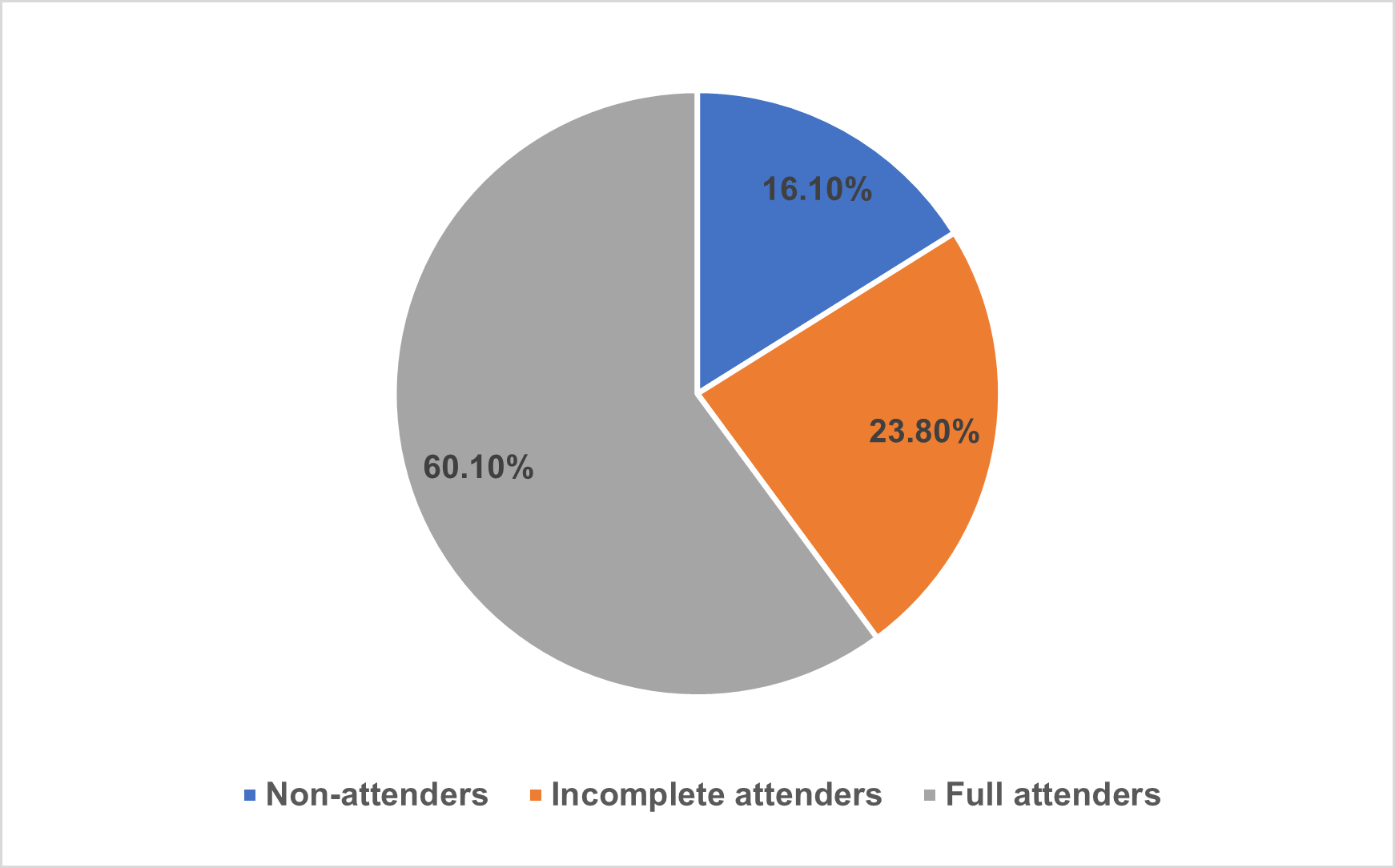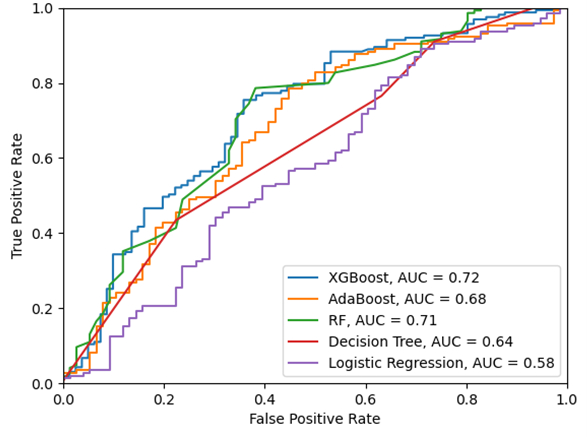Final ID: MDP841
Machine Learning Approaches for Predicting Cardiac Rehab Utilization in Patients with Cardiovascular Diseases
Abstract Body (Do not enter title and authors here): Background/purposes: Cardiac rehabilitation (CR) is shown to reduce cardiovascular mortality and hospital re-admissions in patients with cardiovascular diseases. Despite its benefits, CR faces challenges with low participation rates: only 25% of eligible patients attend at least one session, and only 27% of those who participated complete the recommended 36 sessions. This study aims to predict non-attenders and incomplete-attenders in CR using machine learning (ML) algorithms to guide early interventions for improving adherence.
Methods: This was a retrospective study of patients referred to CR at a single outpatient center from 2020-2023. The dataset was split into training and testing sets at a 7:3 ratio. Patient demographics, travel distance, medical comorbidities, referral indications and insurance type were used for prediction. We employed multiple ML algorithms including XGBoost, AdaBoost, random forest (RF), decision tree(DT). Those models were compared to traditional prediction models such as logistic regression (LR). Model performance was assessed using area under the curve(AUC) of the receiver operating characteristic (ROC) curve and mean absolute error (MAE) to measure the difference between predicted and actual completion sections.
Results: Among 762 patients referred to CR, 16.1% (n=123) were non-attenders, 60.1% (n=458) were full attenders, and 23.8% (n=181) were incomplete attenders (Figure 1). The XGBoost model showed the best performance with an AUC of 0.72 (Figure 2), indicating a 72% chance of correctly predicting patients who are full attenders and those who are incomplete attenders or non-attenders. This was followed by RF, AdaBoost and DT models. LR had the poorest performance. The MAE was 8.2, indicating a significant error between predicted and actual sessions attended.
Conclusion: ML models outperform LR in predicting patients with a low CR participation rate but are not precise in predicting the exact number of attended sessions.
Methods: This was a retrospective study of patients referred to CR at a single outpatient center from 2020-2023. The dataset was split into training and testing sets at a 7:3 ratio. Patient demographics, travel distance, medical comorbidities, referral indications and insurance type were used for prediction. We employed multiple ML algorithms including XGBoost, AdaBoost, random forest (RF), decision tree(DT). Those models were compared to traditional prediction models such as logistic regression (LR). Model performance was assessed using area under the curve(AUC) of the receiver operating characteristic (ROC) curve and mean absolute error (MAE) to measure the difference between predicted and actual completion sections.
Results: Among 762 patients referred to CR, 16.1% (n=123) were non-attenders, 60.1% (n=458) were full attenders, and 23.8% (n=181) were incomplete attenders (Figure 1). The XGBoost model showed the best performance with an AUC of 0.72 (Figure 2), indicating a 72% chance of correctly predicting patients who are full attenders and those who are incomplete attenders or non-attenders. This was followed by RF, AdaBoost and DT models. LR had the poorest performance. The MAE was 8.2, indicating a significant error between predicted and actual sessions attended.
Conclusion: ML models outperform LR in predicting patients with a low CR participation rate but are not precise in predicting the exact number of attended sessions.
More abstracts on this topic:
A Machine Learning Approach to Simplify Risk Stratification of Patients with Atherosclerotic Cardiovascular Disease
Li Hsin Fang, Gluckman Ty, Nute Andrew, Weerasinghe Roshanthi, Wendt Staci, Wilson Eleni, Sidelnikov Eduard, Kathe Niranjan, Swihart Charissa, Jones Laney
Cardiac Rehabilitation In a Safety Net Population - Effects on Hypertension ManagementBurke Morgan, Gan Arnold, Jinno Stephanie, Ge Brandon, Haq Ubayd, Balasubramanian Satish, Chen Grace, Gordon Samuel


